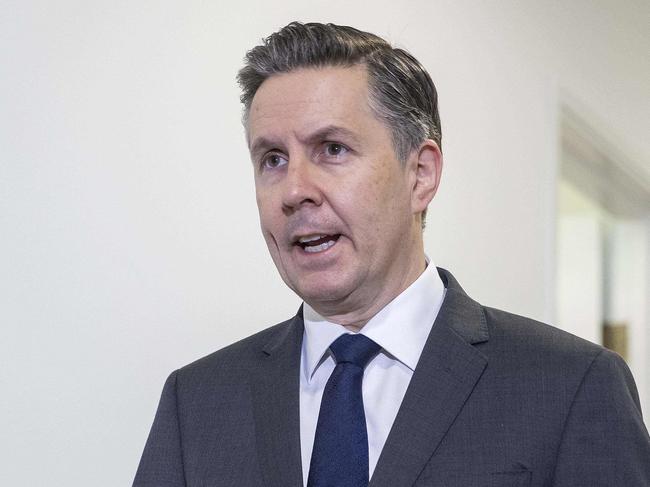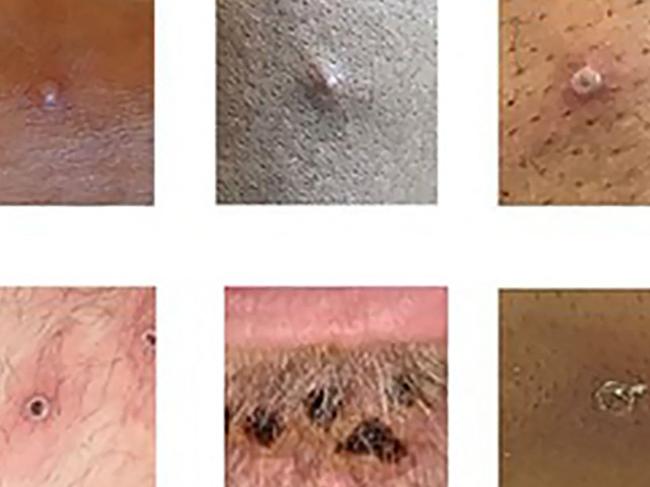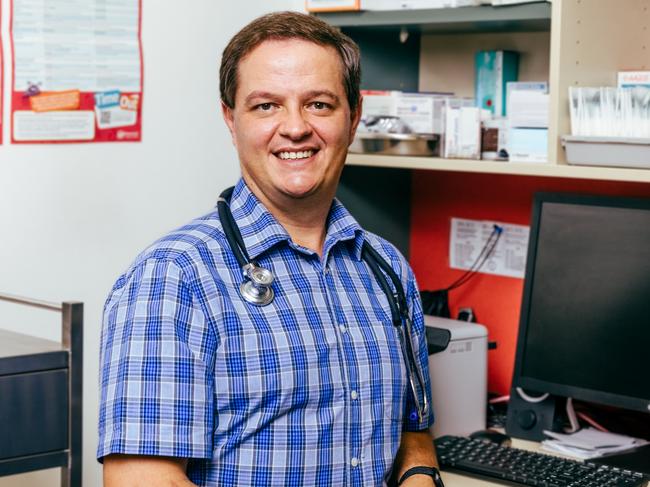Monkeypox vaccine: The key at-risk groups who will have access to third generation jab
At-risk Australians are expected to start receiving the third generation monkeypox vaccine as early as Monday. SEE WHO IS ON THE LIST
National
Don't miss out on the headlines from National. Followed categories will be added to My News.
At-risk Australians are expected to start receiving the third generation monkeypox vaccine as early as Monday.
The Federal Government has taken delivery of the first 22,000 of 450,000 doses of the Jynneos vaccine it secured last week from international vaccine company Bavarian Nordic.
The remainder of the stock is expected to arrive in stages this year and in 2023.
The government has followed the lead of other countries around the world where outbreaks have occurred and set up a National Monkeypox Taskforce which will provide leadership and policy advice on community engagement, clinical management, education and prevention.
Federal Health Minister Mark Butler said states and territories would receive monkeypox vaccine supplies from the first delivery and would manage the vaccine rollout within their jurisdictions.

This includes prioritising access to the initial doses to manage the immediate outbreak, based on who was at greatest risk of exposure or severe illness and their local context.
Speaking to ABC Radio National, Mr Butler said the government had been “talking for weeks now with state governments about how they’d roll them out.”
“We will not we won’t be doing that from the Commonwealth,” he said. “We’ve organised the supply and we’ll be providing those supplies to state governments to roll out.”
State and territory health authorities are yet to officially announce how the vaccines can be accessed in the community.
But in advice last updated on August 1, the Australian Technical Advisory Group on Immunisation (ATAGI) recommended the key groups to be vaccinated, including:
•Anyone categorised by public health authorities as a high risk monkeypox contact in the past 14 days.
•Gay, bisexual and other men who have sex with men who are at the highest risk of monkeypox infection due to having a high number of sexual contacts. Risk criteria for infection may include those living with HIV; a recent history of multiple sexual partners, participating in group sex or attending sex on premises venues.
•Other proxy markers, such as recent sexually transmitted infection or those being advised to take HIV PrEP due to number of sexual partners. Whilst many people prescribed HIV PrEP are monogamous with a HIV positive partner, this category can also capture those with multiple partners who are at high risk; those who have received a recommendation from other service providers, such as sexual health clinics.
•Sex workers, particularly those whose clients are in high-risk categories.
•Anyone in the above risk categories who is planning travel to a country experiencing a significant outbreak, with vaccination recommended four to six weeks prior to departure.
Immunisation providers who are administering the second generation ACAM2000 smallpox vaccine are also recommended to receive the third generation vaccine.
ACAM2000 is a live-attenuated vaccine that requires specialised training to administer, and post-vaccination wound care is also required.
“ACAM2000 is associated with rare but serious adverse events and cannot be used in severely immunocompromised people, in pregnancy, people with active eczema or in infants below 12 months of age,” according to ATAGI’s clinical guidance on vaccination against monkeypox.
“Jynneos is associated with fewer potential adverse events and is safe to use in people with immunocompromise.”

Latest data released by the Australian Department of Health and Aged Care reveals that as at August 5, there were 57 cases (confirmed and probable) of monkeypox in Australia. This number reflects cases that have been diagnosed in Australia and reported to the National Notifiable Diseases Surveillance System by states and territories.
This includes 31 in New South Wales, 22 in Victoria, two in the Australian Capital Territory, one in Queensland and one in South Australia.
Chief Medical Officer, Professor Paul Kelly has already declared monkeypox a Communicable Disease Incident of National Significance and the National Incident Centre has been activated to provide a national response.
Royal Australian College of General Practitioners rural chair Dr Michael Clements welcomed the arrival of the vaccine.
“This is a breakthrough moment in the fight against the monkeypox virus,” he said.
“Fortunately, we have not had many cases in Australia and by rolling out this vaccine we can limit community transmission and stop the virus taking hold.”

Dr Clements urged Australians to remain calm and listen to expert health advice.
“Once again as a community we all have a role to play,” he said.
“Given everything we have been through over the last two and a half years, it’s natural for people to be anxious or concerned about a new virus entering our shores called monkeypox. You can be reassured that this virus is not nearly as easy to contract as Covid-19 and although it is a ‘cousin’ of smallpox it is not anywhere near as deadly.
“So, there is no need for undue alarm; however, there are small but important steps we can all take to limit transmission of this virus including having those at-risk populations vaccinated as soon as possible.”
Symptoms of monkeypox include a fever, a distinctive rash that looks like tiny blisters, which can occur on any part of the body including the face, and swollen lymph nodes. Those who have recently returned from overseas, or who have been in contact with a case here in Australia, and who develop any of these symptoms should be particularly alert and seek medical advice immediately.
“It is also critical that we do not stigmatise people who contract this virus,” said Dr Clements. “Many people may have seen recent media reports of identified cases predominantly being amongst gay, bisexual, or other men who have sex with men. Please remember that anyone can contract monkeypox and it is not a sexually transmitted disease. This is just a virus, and we need to deal with monkeypox without stigma or unhelpful commentary.
“I don’t want any patients to feel like there are any barries to seeking treatment. If you suspect you have monkeypox please reach out to your GP because we are here to help without judgment.”




